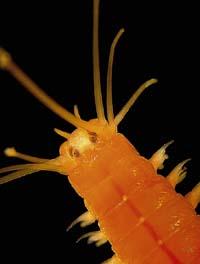Marine annelids to investigate the evolution of the human genome

It is known that each species evolves at a different speed, vertebrates, for example, have evolved quite slowly - including men-. In addition, the human being has many introns in the genes, that is, many episodes that do not encode proteins. Researchers from the European Molecular Biology Laboratory have found that these episodes have survived very old species.
To this conclusion they have come analyzing the DNA of a marine annelid called Platynereis dumerlii. In fact, fossils of very similar species have been found (about six hundred million years ago), so it is said that this annelid is a living fossil because its genome has evolved very little. For this annelid also has many introns in the genes and in positions similar to those that appear in the human being.





